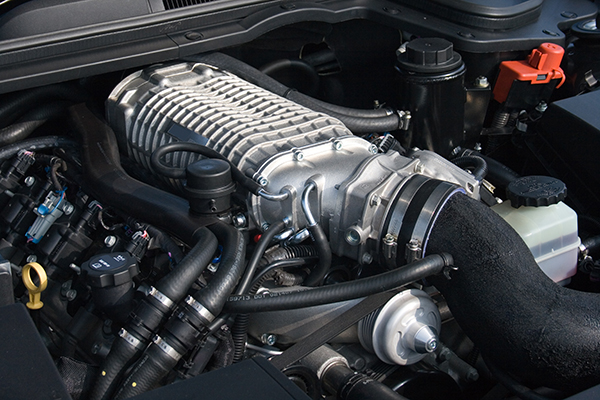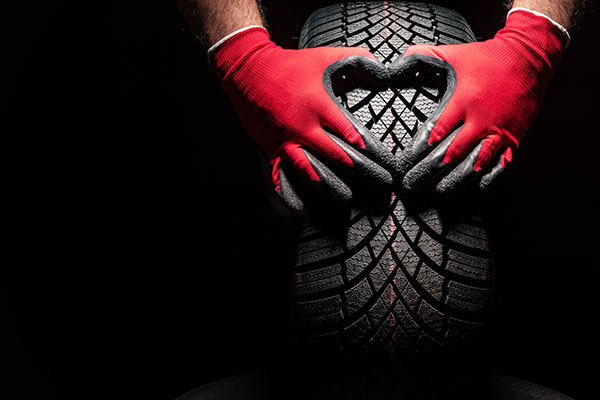Posted on 12/19/2023
.jpeg)
Imagine you're driving, and suddenly, your vehicle's dashboard lights up like a Christmas tree. Panic strikes. What do these cryptic symbols mean? Is your car about to transform into a roadside attraction? Take a deep breath—this is where vehicle computer diagnostics come in, transforming those alarming hieroglyphics into actionable insights. Deciphering Dashboard Lights Your car is a maze of electronic systems and sensors, all governed by what is essentially a computer on wheels. When something goes awry, this system steps in to troubleshoot. It's the Sherlock Holmes of automotive technology—observing, deducing, and informing. Vehicle computer diagnostics are akin to a medical check-up but for your car. When the "Check Engine" or another warning light illuminates, it's time for diagnostics ... read more
Posted on 11/30/2023

As you turn the key and your car's engine roars to life, there's a balance of intricate movements happening beneath the hood. One crucial player is engine timing. It's not just a technical term for automotive enthusiasts; it's the heartbeat of your vehicle's performance - and an overlooked aspect of the engine functionality. How Engine Timing Works At its core, engine timing is the precise synchronization of the opening and closing of the engine's valves with the movement of the pistons. This is controlled by the timing belt or chain, which connects the crankshaft and the camshaft. As the crankshaft rotates, the timing belt or chain ensures that the camshaft turns at the right speed, dictating when the valves open and close. This intricate coordination ensures that fuel is injected and exhaust gasses are expelled at the optimal moments in the engine's four-stroke cycle – intake ... read more
Posted on 10/30/2023

As the gentle warmth of Georgia's summer fades into the crisp chill of winter, the landscape transforms, and so do the challenges for drivers. With icy roads and sudden temperature drops, ensuring your car is equipped with the right tires becomes paramount for a safe and smooth journey. Embracing the upcoming frosty season demands a well-informed tire choice that guarantees traction, stability, and reliability. Let's explore the top tire contenders that promise an unparalleled driving experience during Georgia's colder spells. The Best Tires for Frosty DrivesMichelin X-Ice Xi3 Known for its exceptional grip on icy surfaces, this tire is a top choice for Georgia's occasional snowfalls. Its innovative tread design ensures enhanced traction on both wet and dry roads, making it a reliable ally for unexpected wintry mixes. Its durability and precise handling capabilities provide drivers with peace of mind on Georgia's slippery terrai ... read more
Posted on 9/29/2023

Diesel vehicles have long been known for their robust performance and exceptional fuel efficiency, but they also come with their own set of challenges. One of the most prevalent headaches that diesel vehicle owners face is related to the EGR (Exhaust Gas Recirculation) system. These three letters, EDG, may seem innocuous, but they can lead to significant issues if not managed properly, which most car owners do - but don't worry because we are here to help. Decoding the EDG System - What Does It Do? Let's start with what the EDG system is all about. It's an integral part of diesel engines designed to reduce emissions by recirculating a portion of the exhaust gasses back into the combustion chamber. While this is eco-friendly, it can also lead to carbon buildup and decreased performance if not managed effectively. Regular Maintenance Prevention is the name of the game when it comes to the EDG system. Regular maintenance, including timely ... read more
Posted on 8/31/2023

If you've ever looked at a car post-2017 and thought, "Wait, is this from the future?" – you're in the right place! We're talking about those sleek, high-tech machines cruising the streets and making old models look like they belong in a museum. Sometimes, it feels like some vehicle models that are 2 years apart, don't look alike at all - but why is that? 1. Stricter Safety Standards One of the driving forces behind the change in vehicle design is the implementation of stricter safety standards. Automakers have been incorporating advanced safety technologies to meet regulatory requirements and enhance driver and passenger protection. Features like automatic emergency braking, lane departure warnings, and adaptive cruise control have become more common, influencing the exterior design to accommodate sensors and cameras. 2. Aerodynamics and Fuel Efficiency As the world's attention turns toward environmental sustain ... read more